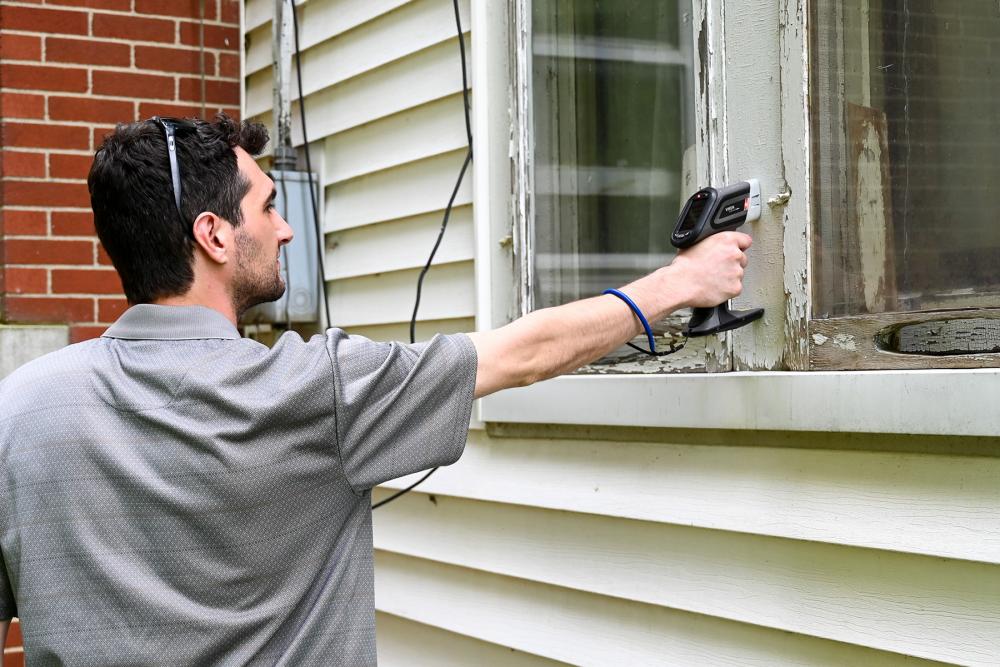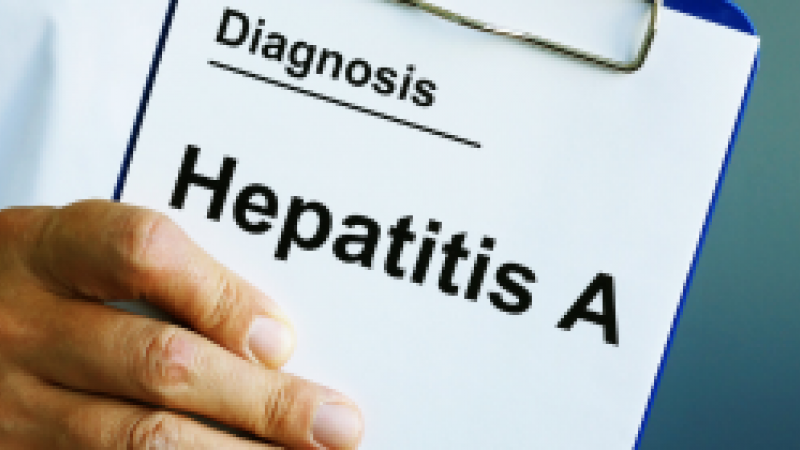
Chautauqua County Health Department staff conducting a lead test on an old windowpane.
MAYVILLE, N.Y. – The Chautauqua County Health Department (CCHD) continues its work to protect children by preventing and reducing childhood lead poisoning. More families with young children in Chautauqua County will be living in lead-safe homes, thanks to $700,000 in American Rescue Plan Act (ARPA) funding allocated through Chautauqua County Government.
Qualifying homeowners will be able to use ARPA funds to get windows and doors in their home replaced. Old windows and doors are major sources of lead exposure.
“Over time, opening and closing windows and doors wears down paint, creating nearly invisible but highly toxic lead paint dust in older homes. Replacing them is important but is cost-prohibitive for many families,” notes Anna Powell, CCHD’s Childhood Lead Program Coordinator. “This program will substantially reduce the risk of children being exposed to lead in their homes and will also protect future residents from being lead poisoned.”
Lead exposure in early childhood can cause permanent learning and behavior problems, but children rarely show immediate signs or symptoms. Many parents do not realize that their children are being exposed until the child gets their required lead test at the pediatrician. New York State requires that providers perform a lead test for children at ages one and two.
“If you live in a home built before 1978, we strongly urge you to get your home tested, ideally before a child even comes through the door for the first time, and definitely before they start crawling,” continues Powell. “Lead paint is common in our area’s older homes, and we want to prevent lead exposure from ever happening. If there is a child under the age of six (6) years living in a home, or visiting the home on a regular basis, our certified Lead Risk Assessors will test the home for free.”
Approximately 24 properties and potentially dozens more families and children are expected to benefit from the ARPA funding. The funding has been prioritized for homeowner occupied units where children who have been identified with elevated blood lead levels spend time. The program will be operated through Chautauqua Opportunities, Inc. (COI). COI currently partners with CCHD on a Housing and Urban Development (HUD) Lead Hazard Reduction grant, which is scheduled to end later this year.
According to COI’s CEO, Diane Hewitt-Johnson, “Most of the homes located in Chautauqua County were built before 1978 which means there is a high probability that lead paint is present. This grant provides us with the ability to focus on ensuring homes are safe and reducing the risk of the inhabitants being exposed to lead. This ultimately improves not only our housing stock but our community as a whole.”
“ARPA assistance will help low to moderate income homeowners that were not able to take advantage of other funding assistance. Utilizing the framework and systems we have already developed with Chautauqua Opportunities is a smart and efficient way of maximizing resources to mitigating this issue.” states Lacey Wilson, CCHD Public Health Director.
Chautauqua County Executive PJ Wendel expressed his support for this initiative, stating, "Eliminating childhood lead poisoning is a priority for Chautauqua County. By utilizing ARPA funds to assist homeowners in making their homes lead-safe, we are protecting the well-being of children in our County, and I applaud our Health Department for their leadership in addressing childhood lead poisoning.”
For more information about Chautauqua County’s Lead Poisoning Prevention Program, including how to get your home tested for lead paint, please visit HealthyCHQ.com/Lead, or contact Anna Powell at 716-753-4764.
About Chautauqua County Health Department - The Chautauqua County Health Department is the leading Public Health organization in Chautauqua County dedicated to the support of the community’s health. The Health Department takes innovative approaches to provide technical assistance to partner organizations, and offers various programs and services in order to help prevent disease, protect the public’s health and promote our community’s overall health and wellness. For more information visit www.HealthyCHQ.com.






